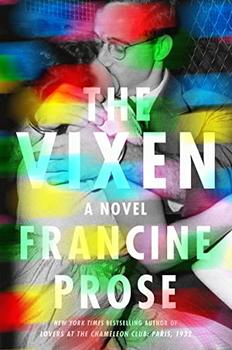Summary | Excerpt | Reading Guide | Reviews | Beyond the book | Read-Alikes | Genres & Themes | Author Bio

A spellbinding historical novel about a woman who befriends Ethel and Julius Rosenberg, and is drawn into their world of intrigue, from the author of Margot.
On June 19, 1953, Ethel and Julius Rosenberg were executed for conspiring to commit espionage. The day Ethel was first arrested in 1950, she left her two young sons with a neighbor, and she never came home to them again. Brilliantly melding fact and fiction, Jillian Cantor reimagines the life of that neighbor, and the life of Ethel and Julius, an ordinary-seeming Jewish couple who became the only Americans put to death for spying during the Cold War.
A few years earlier, in 1947, Millie Stein moves with her husband, Ed, and their toddler son, David, into an apartment on the eleventh floor in Knickerbocker Village on New York's Lower East Side. Her new neighbors are the Rosenbergs. Struggling to care for David, who doesn't speak, and isolated from other "normal" families, Millie meets Jake, a psychologist who says he can help David, and befriends Ethel, also a young mother. Millie and Ethel's lives as friends, wives, mothers, and neighbors entwine, even as chaos begins to swirl around the Rosenbergs and the FBI closes in. Millie begins to question her own husband's political loyalty and her marriage, and whether she can trust Jake and the deep connection they have forged as they secretly work with David. Caught between these two men, both of whom have their own agendas, and desperate to help her friends, Millie will find herself drawn into the dramatic course of history.
As Millie - trusting and naive - is thrown into a world of lies, intrigue, spies and counterspies, she realizes she must fight for what she believes, who she loves, and what is right.
Any time an author delves into historical fiction, he or she must make the work plausible, which Jillian Cantor does. The Hours Count invites readers into a world that astutely blends fact with fiction...continued
Full Review
(593 words)
This review is available to non-members for a limited time. For full access,
become a member today.
(Reviewed by Mollie Smith Waters).
Americans Julius and Ethel Rosenberg, accused of being Soviet spies, are at the center of Jill Cantor's novel, The Hours Count. After their marriage in 1939 the Rosenbergs moved to New York City's Knickerbocker Village where they lived with their two sons, Michael and Robert (renamed John and Richie in the book), until their arrests on charges of espionage in 1950. When Julius and Ethel were executed on June 19, 1953, their young sons were left orphaned. What became of them?
 After Ethel's arrest, the boys lived for a short time with their maternal grandmother, Tessie Greenglass, but she then placed them with the Hebrew Children's Home. Later, Sophie Rosenberg, their paternal grandmother, took them in. But after their parents were ...
After Ethel's arrest, the boys lived for a short time with their maternal grandmother, Tessie Greenglass, but she then placed them with the Hebrew Children's Home. Later, Sophie Rosenberg, their paternal grandmother, took them in. But after their parents were ...
This "beyond the book" feature is available to non-members for a limited time. Join today for full access.

If you liked The Hours Count, try these:

by Kate Quinn
Published 2024
The New York Times bestselling author of The Diamond Eye and The Rose Code returns with a haunting and powerful story of female friendships and secrets in a Washington, DC, boardinghouse during the McCarthy era.

by Francine Prose
Published 2022
Critically acclaimed, bestselling author Francine Prose returns with a dazzling new novel set in the glamorous world of 1950s New York publishing, the story of a young man tasked with editing a steamy bodice-ripper based on the recent trial and execution of Ethel and Julius Rosenberg - an assignment that will reveal the true cost of entering that ...